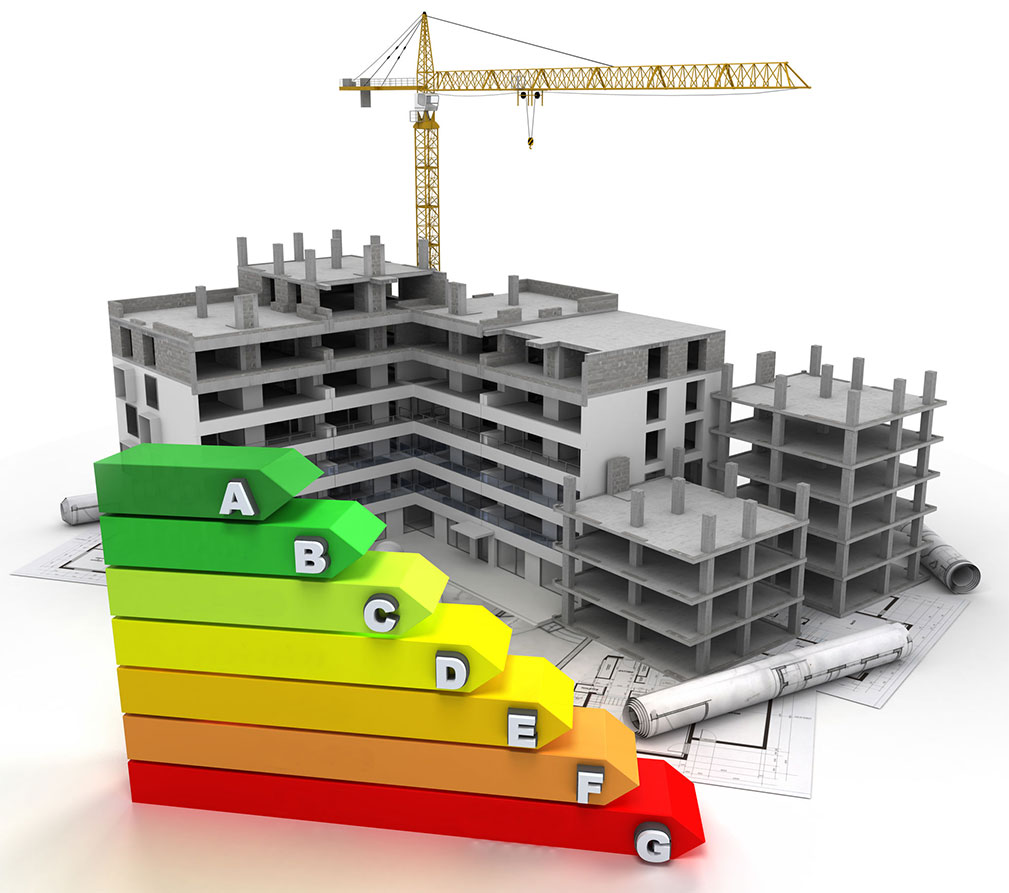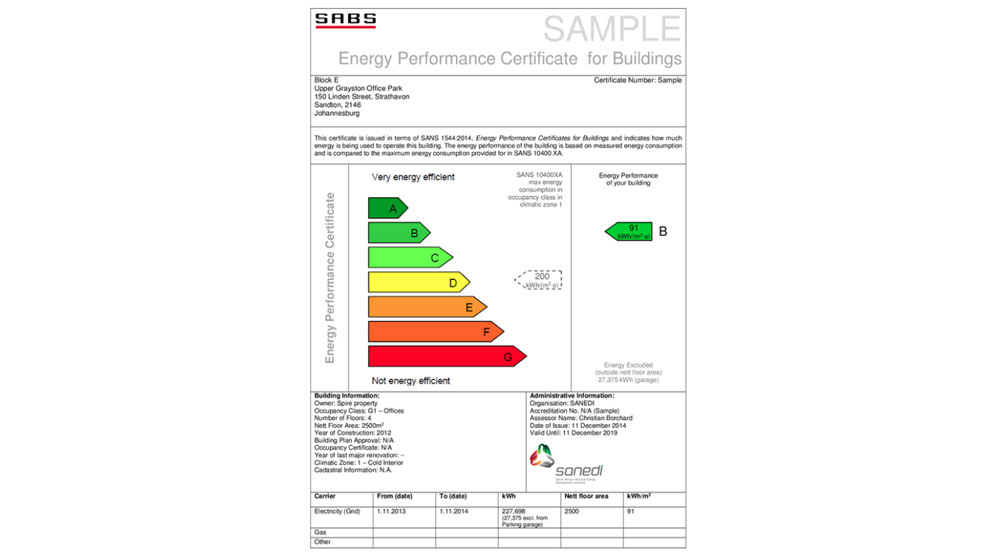
EPC compliant?



of your energy rating


Energy Performance Certificates (EPC)
Some people might consider an Energy Performance Certificate as a grudge compliance measure and expense that could not come at a worse time. RMS Sustainability Services view EPCs entirely differently. It is a decision-making tool that can guide property owners toward smarter investments in energy-saving projects.
An EPC opens a world of insight into how much energy your building is using. With utility bills becoming a major chunk of operating costs, it’s time to turn the tables. Reducing energy consumption directly slashes those pesky bills, and EPCs are here to spotlight where the biggest savings await. So, why not let your funds work harder and smarter by channelling them into the areas with the most potential for savings?

WHAT IS AN ENERGY PERFORMANCE CERTIFICATE (EPC)?
An Energy Performance Certificate (EPC) shows the energy performance of a building as a rating from A to G, with A being the most efficient and G the least efficient rating. An “A” means the building is very efficient, while a “G” indicates there’s room for improvement. As of December 2022, EPCs are a must-have for certain buildings! If you own a private building with a net floor area over 2,000 square meters or a public building exceeding 1,000 square meters, you’ll need an EPC rating by December 7, 2025. Plus, the EPC must be prominently displayed for everyone to see.
According to SANS 10400 XA, the types of buildings that need an EPC include:- A1 – Entertainment and Public Assembly: Places where people gather to eat, drink, dance, or enjoy leisure activities.
- A2 – Theatrical and Indoor Sports: Venues for watching performances like theatre, opera, sports, or films.
- A3 – Places of Instruction: Any learning space other than primary or secondary schools, including places where students or children gather for educational purposes.
- G1 – Offices: Large office buildings, banks, consulting rooms, and office parks with multiple buildings that operate independently.

WHAT ABOUT STATE-OWNED BUILDINGS?
The same rules apply to buildings owned by an organ of state, EXCEPT that the threshold is a net floor area of only 1 000sqm.

WHAT IMPACTS MY BUILDING RATING?
Curious about what goes into your building’s Energy Performance Certificate (EPC) rating? It’s all about how much energy your building uses per square meter each year, as determined by SANS 1544, the standard for EPC calculations. Several factors influence your building’s rating, including: Size: The bigger the building, the more energy it might use. Occupancy Type: What’s the building used for? Different activities consume different amounts of energy. Location: Where your building is located matters. Climate can significantly impact energy consumption. Energy Usage: Buildings using more energy per square meter will score lower compared to similar buildings in the same climate zone that are more energy-efficient. Want to dive deeper into how EPC ratings are calculated? Click the button below to share your contact details, and we’ll reach out with all the details in a comprehensive EPC briefing.
FOR HOW LONG IS AN EPC VALID?
The EPC is valid for five years. If a building receives a poor rating, the property owner can invest in energy efficiency enhancement initiatives to improve the building’s rating. However, a new certificate reflecting these improvements cannot be issued until the end of the five-year period. Only after the five years have passed can a new EPC be issued, which will reflect the implementation of the energy-saving initiatives. This new certificate will then be valid for a further five years. How Long is an EPC Valid? Your Energy Performance Certificate (EPC) is your building’s energy passport, and it’s valid for up to five years. But what if your building gets a not-so-great rating? No worries! Property owners can roll up their sleeves and dive into energy efficiency improvements to boost that score. However, a new certificate reflecting these improvements can only be issued after the current five-year period ends. Once the five years are up, you can apply for a new EPC that showcases the energy-saving initiatives you’ve implemented. This updated certificate will then be valid for another five years. Ready to start your energy efficiency journey? Click the button below to get in touch, and we’ll guide you every step of the way!
HOW IS A BUILDING'S RATING AFFECTED BY A SOLAR PV INSTALLATION?
How Does a Solar PV Installation Affect a Building’s EPC Rating?
An Energy Performance Certificate (EPC) takes into account all forms of energy used by a building, including energy generated by solar PV installations.
Imagine two buildings with the same net floor area, located in the same climate zone, consuming the same amount of energy. One building gets all its energy from diesel generators and the national grid, while the other generates half of its energy from a solar PV plant. Both buildings will receive the same EPC rating because the total energy consumption is identical, regardless of the energy source. However, the EPC will highlight the solar PV plant’s contribution to the second building’s energy usage, providing transparency about the energy sources.
This visibility is valuable for tenants in buildings where property owners have invested in solar PV systems to lower their carbon footprint.
Want to learn more about how a building’s rating is calculated? Click the button below to provide your contact details, and we’ll get in touch!
Energy Performance Certificate?
RMS is dedicated to staying ahead of regulatory changes and ensuring full compliance in the energy performance sector. With the updated mandate requiring EPCs (Energy Performance Certificates) to be issued by a SANAS accredited body until July 31, 2024, and thereafter by Registered EPC Professionals, RMS has strategically positioned itself to meet these regulations. Our team of Registered EPC Professionals are fully equipped to develop certificates in accordance with the South African National Standard SANS 1544:2014. This commitment underscores our pledge to deliver top-tier energy performance certification services, guaranteeing our clients both regulatory compliance and exceptional quality.
The steps involved include:

Appoint a service provider with a Registered EPC Professional
Confirm building registration
HOW LONG DOES IT TAKE TO ISSUE AN EPC?
Issuing an Energy Performance Certificate (EPC) involves several steps, and gathering the necessary data is often the most time-consuming part of the process.
To calculate a building’s rating, a Registered EPC Professional needs at least the following information for the 12-month assessment period:
Consumption Data: Details of all energy sources used in the building, including council (or Eskom) bills and invoices for other energy sources like diesel, gas, and coal. Whenever possible, using measured data is highly recommended.
Building Plans: Approved building plans or architectural drawings that provide the information needed to determine the building’s net floor area.
Occupancy Information: Data showing the percentage occupancy of the building each month and by occupancy type.
Once we have all the necessary information, we aim to issue the EPC within 10 business days. Part of this process includes validating the information provided by the property owner. This validation involves a physical assessment of the building through a site walk-through audit.
WHAT ARE THE CONSEQUENCES OF NON-CERTIFICATION?
Under the National Energy Act of 1998 (Act 34 of 2008), the Minister of Energy has set regulations for the mandatory display and submission of Energy Performance Certificates (EPCs) for buildings. According to these regulations, failing to publicly display your EPC is considered an offence.
The National Energy Act specifies that non-compliance can result in serious penalties, including:
Fines: Up to five million rand.
Imprisonment: Up to five years.
Both: A combination of fine and imprisonment.
While the enforcement of these penalties is ultimately up to legal interpretation and decisions by property owners, the regulations and the Act are clear about the potential consequences for non-compliance. It’s essential to adhere to these requirements to avoid any legal issues.
EPCs ROLL-OUT
In 2021, RMS kicked off an EPC briefing campaign to boost awareness and offer valuable information to property owners.
Thanks to recent amendments, the deadline for the mandatory display of Energy Performance Certificates (EPCs) for qualifying buildings has been extended to December 7, 2025. However, even with this extension, property owners are still required to register their building’s type, size, and energy performance in the National Building Performance Register (NBEPR) by August 3, 2024.
For more information, feel free to contact us!
GET IN TOUCH TO LEARN MORE
If you’re interested in learning more about Energy Performance Certificates (EPCs) or would like to use our services, please fill out the form below. Provide the necessary details about your certification needs so we can assist you effectively. Remember, an EPC is issued per building, not per property.
For each building, please provide:
- Property Owner: Who owns the property?
- Property (Campus) and Building Name: For example, New Office Park Block A.
- Number of Floors: Excluding basements.
- Number of Basement Floors.
- Building Type: Is it a standalone building or part of a campus?
- Occupancy Type: Is it an office, a retail building, a place of instruction, etc.?
- Office Layout: Does the building have mostly open-plan areas or mostly closed offices (if applicable)?
- Building Floor Area (GLA): In square meters.
WHAT IS THE SIGNIFICANCE OF THE 7 DECEMBER 2025 , DEADLINE FOR EPCs
The 7 December 2025, deadline marked the regulatory transition, during which EPCs were issued by a SANAS-accredited body until this date. Afterward, only Registered EPC Professionals are authorised to issue EPCs. RMS is well-prepared for this change, ensuring a seamless transition while maintaining the highest quality and compliance standards in our EPC certification services.
WHAT STEPS IS RMS TAKING TO ENSURE A SEAMLESS TRANSITION FOR CLIENTS DURING THE REGULATORY CHANGE?
RMS is committed to providing uninterrupted and high-quality service throughout the regulatory transition. We are proactively updating our processes and training our EPC inspectors to register as professionals with SANEDI. Additionally, our in-house Quality Assurer is closely monitoring the transition to ensure all certifications remain compliant and accurate. By staying ahead of these changes, we ensure our clients experience a smooth and efficient transition.
HOW WILL RMS HANDLE THE TRANSITION FROM SANAS-ACCREDITED BODIES TO REGISTERED PROFESSIONALS FOR EPC ISSUANCE?
Remote Metering Solutions (Pty) Ltd (EPC0009), voluntary withdrawal from the SANAS accreditation full scope as of the 1st of August 2024 to confirm our commitment with the changes in regulation. As part of RMS’s commitment to ensuring our clients remain compliant and receive ongoing support with their certification needs, we have successfully registered one EPC Professional and will have two additional EPC Professionals registered with SANEDI by the end of August 2024.
HOW CAN CLIENTS VERIFY THE CREDENTIALS OF RMS'S EPC INSPECTORS?
Clients can verify the credentials of RMS’s EPC inspectors by requesting their certification details and professional registration status or by viewing a copy of their status under Document Tab. Our inspectors are registered with SANEDI, and meet the requirements of South African National Standard SANS 1544:2014 to issue EPCs.


